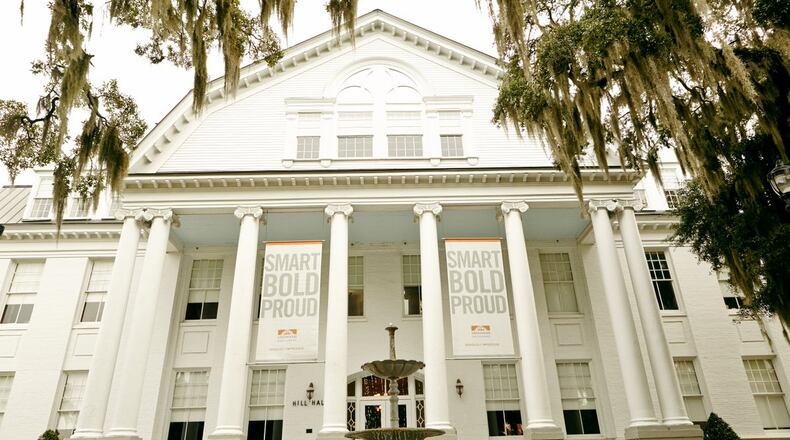Two nonprofit entities associated with student housing at Savannah State University have been freed from a Georgia mother’s attempt to hold them responsible for the fatal shooting of her son.
A lawsuit brought by Konshitera Lewis against Savannah State University Foundation Real Estate Ventures LLC and Savannah State University Foundation Inc. was ended Friday by the Georgia Court of Appeals.
Lewis blamed the nonprofit company and its sole-member foundation for the death of her son, Donald Lewis, who was fatally shot while visiting friends in student housing known as the University Village on the university campus in September 2013. Donald Lewis, 20, was not a student of the university.
The court relied heavily on a previous decision it made in relation to the unrelated 2015 fatal shooting of Savannah State University student Christopher Starks. It determined that the nonprofits could not be held liable as neither possessed or controlled the student housing where Donald Lewis was shot.
“Neither the LLC nor the foundation were involved in public safety on campus,” the court said.
In October 2021, the court ruled that Starks’ parents, Sharron and Willie Starks, could not sue a nonprofit associated with the Board of Regents of the University System of Georgia in relation to their son’s death. Christopher Starks, 22, was a former high school football standout who was fatally shot in the university’s Student Union in August 2015.
The on-campus shootings of Donald Lewis, Christopher Starks and others prompted fresh debate about whether guns should be allowed on college properties in Georgia.
In the separate lawsuits filed by the parents of Donald Lewis and Christopher Starks against nonprofit entities, the Georgia Court of Appeals determined those organizations were out-of-possession landlords and therefore not responsible.
Case filings show the company sued by Konshitera Lewis was created to facilitate financial transactions for the university without the state incurring debt. The company’s foundation accepted and disbursed gifts on behalf of the university.
The land under University Village is owned by the Board of Regents. The nonprofit company acquired the student housing in 2008 and entered into a ground lease for the property with the board.
The company then leased the property and the student housing back to the board. Under that arrangement, the university has remained in possession of the property and made rental payments to the company.
“The LLC has no authority to control access to the University Village property,” the court said Friday. “Nothing in the record suggests that the foundation – which is named as a defendant only because it is a member of the LLC – exercised any more possession or control over the premises than the LLC.”
The situation was “strikingly similar” in the Starks’ case against nonprofit USG Real Estate Foundation III LLC, the court said Friday.
The board owns the land under Student Union where Christopher Starks was shot, and leased the property back from USG. The university maintained possession of the property and responsibility for on-site security.
The parents of Donald Lewis and Christopher Starks each first sued the board before bringing separate cases against the nonprofits.
Konshitera Lewis voluntarily dismissed her September 2015 lawsuit against the university, the board and others in July 2018. Her case against the nonprofits was filed in October 2018.
Sharron and Willie Starks sued the board in June 2016, then dropped that case several months later. Their lawsuit against USG was filed in October 2016.
Brian C. Smith, an attorney for the nonprofits sued by Konshitera Lewis, told the Atlanta Journal-Constitution the court reached the right conclusion. He said the ruling should have an impact on similar cases.
“These financing structures are utilized across many college and university campuses in the state of Georgia and other states throughout the country,” Smith said Monday. “We are certainly pleased with this ruling.”
Konshitera Lewis’s attorneys did not immediately respond Monday to questions about the decision.
About the Author
The Latest
Featured

